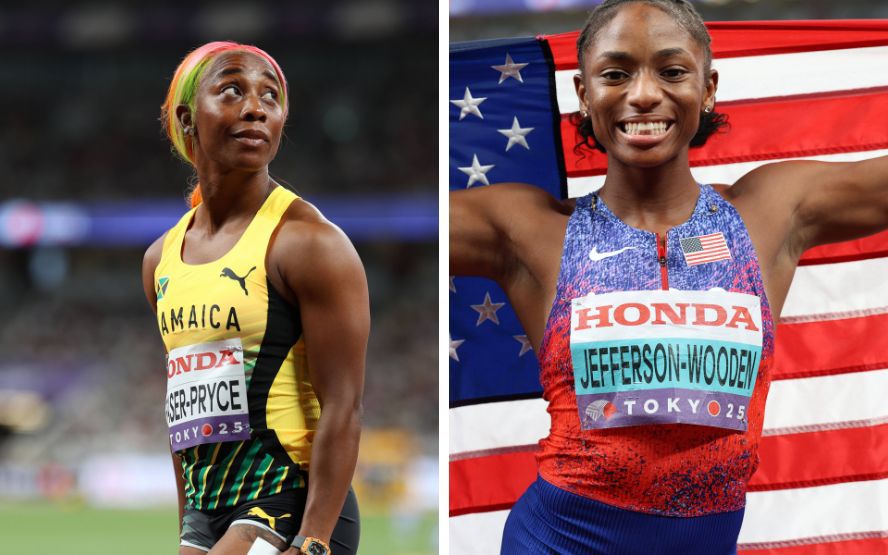Melissa Jefferson-Wooden has hailed Shelly-Ann Fraser-Pryce’s legendary influence on sprinting after becoming only the second woman in history to win the 100m, 200m, and 4x100m relay at the World Athletics Championships.
The American sprinter announced her arrival on the global stage with a sensational 100m victory, clocking 10.61 seconds to secure gold and establish herself as the fourth fastest woman in history. She followed it up with triumph in the 200m before sealing her dominance with a commanding performance in the 4x100m relay.
This remarkable treble had previously been achieved by only one woman – Shelly-Ann Fraser-Pryce at the 2013 World Championships in Moscow. By repeating the feat more than a decade later, Jefferson-Wooden etched her name into the history books alongside the Jamaican sprint queen.
Reflecting on her journey, Jefferson-Wooden credited Fraser-Pryce as a key source of inspiration. She recalled watching the Jamaican sprinter’s rise from her early days, including her first world title win at 23, which served as a defining moment not just for Fraser-Pryce but for young athletes worldwide.
“Shelly-Ann set the bar really high,” Jefferson-Wooden explained. “As a little girl watching her achieve what many thought was impossible at such a young age, I felt connected to her journey. In many ways, I see myself walking a similar path, but in my own way. To now share the same stage with her is nothing short of surreal.”
Jefferson-Wooden highlighted how Fraser-Pryce’s longevity and dominance transformed women’s sprinting, creating a blueprint for future champions. She admitted that seeing the Jamaican consistently defy expectations gave her the belief that she, too, could rise to the top.
With Fraser-Pryce now stepping away from the track, Jefferson-Wooden is determined to carry the torch forward. Her ambition is not only to maintain the high standards set by her idol but also to elevate women’s sprinting to new heights in the years to come.
The baton has officially been passed, and Jefferson-Wooden’s performances in Tokyo signal the dawn of a new era in sprinting—one built on the foundations laid by a legend and carried forward by a rising star.

